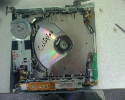Vitos9th
Member
- Joined
- June 26, 2011
- Messages
- 16
- Reaction score
- 0
- City, State
- Los Angeles, CA
- Year, Model & Trim Level
- 92 XLT 4WD
Hello, I've got a question about my moms '96 5.0 Explorer. She recently said the brakes didn't feel quite right so I drove it and under normal conditions (light braking for stop signs/lights, city driving, etc.) they felt great. But, when I would make "quick" or "panic" stops, it would take a while to stop. I decided to have a look so I pulled the wheels off to give the brakes a nice inspection. Visually, everything checked out, plenty of pad left (4-wheel disc), brake lines look good, no leaks, nothing seemed broken or anything.
Next, I checked the brake fluid, it was a little low but nothing extreme. I added fluid, and decided to bleed the brakes anyway. After all this, I netted the same result.
Next, I tested the parking brake booster according to my Haynes manual and it seems to be airtight.
Next I flushed the brake fluid since it looked old, same result.
My dad, convinced it was the master cylinder, wanted to replace it. I picked it up, bench-bled it, installed it, and low and behold....brakes feel exactly the same!
I'm at a loss at this point, though i service/replace my own brakes when needed with good results, I'm no expert on the brake system.
Could the ABS be kicking in a little too liberally? a sensor or something else I can check? Again, under "normal" or "light to medium" use the brakes feel fine, but when I hit 'em hard the car just travels pretty darn far.
Ok one more thing, I know the post is long, sorry: Another thing I noticed is when I have my foot on the brake, then start it up, the pedal softens, as it should, but then there is like a pop or jarring feeling in the pedal, that's the best I can describe it, it happens and then thats it.
So, any ideas anybody? What am I missing here?? Thanks!
Next, I checked the brake fluid, it was a little low but nothing extreme. I added fluid, and decided to bleed the brakes anyway. After all this, I netted the same result.
Next, I tested the parking brake booster according to my Haynes manual and it seems to be airtight.
Next I flushed the brake fluid since it looked old, same result.
My dad, convinced it was the master cylinder, wanted to replace it. I picked it up, bench-bled it, installed it, and low and behold....brakes feel exactly the same!
I'm at a loss at this point, though i service/replace my own brakes when needed with good results, I'm no expert on the brake system.
Could the ABS be kicking in a little too liberally? a sensor or something else I can check? Again, under "normal" or "light to medium" use the brakes feel fine, but when I hit 'em hard the car just travels pretty darn far.
Ok one more thing, I know the post is long, sorry: Another thing I noticed is when I have my foot on the brake, then start it up, the pedal softens, as it should, but then there is like a pop or jarring feeling in the pedal, that's the best I can describe it, it happens and then thats it.
So, any ideas anybody? What am I missing here?? Thanks!










